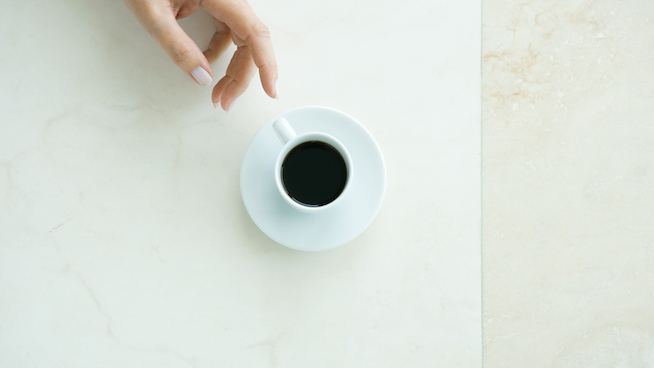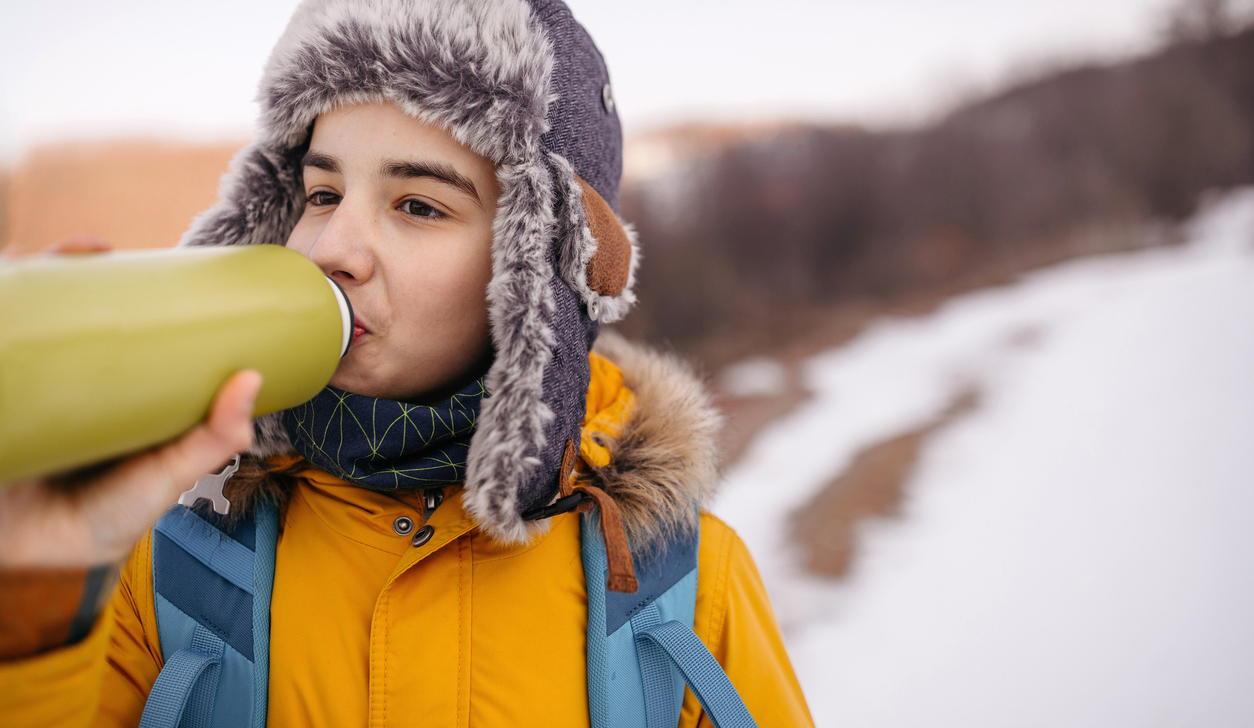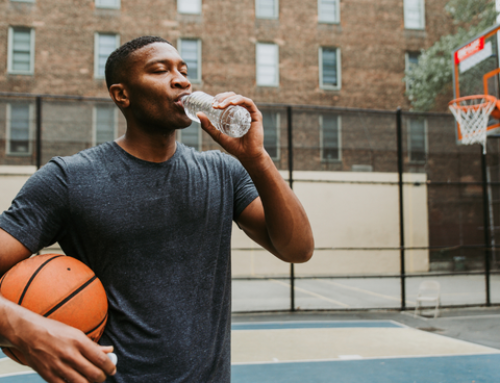Hydration for Athletes: 4 Tips You Need to Know
![]()
Every athlete knows to drink plenty of water.
But how much? When? Is Gatorade a substitute, or should you drink just water? This knowledge is critical for athletes who want to work their hardest. The human body needs hydration to stay cool and recover the water it loses through sweat. It also needs water to keep all of its muscles running, including the heart. And dehydration is a dangerous medical condition.
Here are some important tips every athlete should remember about staying hydrated and performing at peak capacity.
When to drink matters as much as how much to drink
When athletes talk about staying hydrated, they normally focus on how much water to drink. The amounts vary by individual as well as in relation to the kind of exercises they are doing, but the American Council on Exercise recommends that athletes drink “7-10 ounces of fluid every 10 to 20 minutes during exercise.”
But all too often, athletes do not drink until they are thirsty, and then they guzzle huge amounts of water. This is not the best way to stay hydrated. Thirst, after all, is a sign that your body does not have enough water. An athlete should avoid being in that state to begin with.
Athletes should start hydrating a couple of hours before they actually work out, then take regular breaks to drink during their workout, whether they are thirsty or not.
If you are still worried about whether you are drinking enough water, the best thing to do is check your urine. If your urine is a dark color, you are not drinking enough water regardless of how much you exercise.
Overhydration can happen

As much as athletes worry about the threat of dehydration, it is possible to face health complications from drinking too much water after long periods of exercise. Or, to be more precise, from drinking water while not ingesting enough sodium and electrolytes.
Remember, sweat is a combination of water and salt. Your body needs both, and salt helps to maintain hydration for athletes through osmosis. Most people don’t have to worry about sodium depletion after a regular workout, but a prolonged workout lasting several hours can lead to sodium imbalances, which are only worsened by excessive water intake. In the worst case scenario, “this can lead to hyponatremia,” warns Dr. Nakul Karkare, an eminent orthopedic surgeon who works with injured athletes. The symptoms of this can include headaches, vomiting and confusion.
So what does this mean for an athlete’s hydration? First, although drinking water is normally fine, athletes who work out intensely for several hours should consume a sports drink with electrolytes. Some recommended drinks include Gatorade, Powerade and Cytomax.
Also, athletes should make sure they are getting enough sodium in their diets. There are a lot of unhealthy ways to get sodium, but healthy options include olives, pickles, carrots and dairy. Regular intake of sodium helps your body process water better and stay hydrated while exercising.
Caffeine won’t dehydrate you (but you still shouldn’t drink it)
One medical myth in our society is that caffeinated drinks cause dehydration. The link seems logical to anyone who has headed to the restroom after having a few cups of coffee.
But according to NPR, a scientific study conducted in Birmingham concluded that “caffeine really had absolutely no influence on hydration status.” Coffee does have a mild diuretic effect, but our bodies quickly develop a tolerance for it and do not end up losing more water overall.
Athletes do not need to stop having a cup of coffee in the morning. But this does not mean that caffeinated drinks can serve as a substitute for water and sports drinks while you’re working out. Too much caffeine can lead to heart palpitations and make you jittery.
Consequently, athletes should avoid consuming drinks with caffeine both before and during a workout. This includes soda as well as energy drinks like Red Bull.
Hydration is not difficult
Athletes can be forgiven for thinking that staying properly hydrated is difficult. But it is not that complicated.
If you’re working out for a period of about an hour, regular water consumption is fine. You shouldn’t wait until you’re thirsty, but just drink water regularly. If your workout will last much longer than an hour, a sports drink can replenish your electrolytes and sodium, which your body needs to stay properly hydrated.
Water is the best drink that anyone, athlete or not, can consume in daily life. By drinking regularly, athletes can ensure they will perform at peak capacity and be more confident in reaching their goals.
[cf]skyword_tracking_tag[/cf]RECOMMENDED FOR YOU
MOST POPULAR
Hydration for Athletes: 4 Tips You Need to Know
![]()
Every athlete knows to drink plenty of water.
But how much? When? Is Gatorade a substitute, or should you drink just water? This knowledge is critical for athletes who want to work their hardest. The human body needs hydration to stay cool and recover the water it loses through sweat. It also needs water to keep all of its muscles running, including the heart. And dehydration is a dangerous medical condition.
Here are some important tips every athlete should remember about staying hydrated and performing at peak capacity.
When to drink matters as much as how much to drink
When athletes talk about staying hydrated, they normally focus on how much water to drink. The amounts vary by individual as well as in relation to the kind of exercises they are doing, but the American Council on Exercise recommends that athletes drink “7-10 ounces of fluid every 10 to 20 minutes during exercise.”
But all too often, athletes do not drink until they are thirsty, and then they guzzle huge amounts of water. This is not the best way to stay hydrated. Thirst, after all, is a sign that your body does not have enough water. An athlete should avoid being in that state to begin with.
Athletes should start hydrating a couple of hours before they actually work out, then take regular breaks to drink during their workout, whether they are thirsty or not.
If you are still worried about whether you are drinking enough water, the best thing to do is check your urine. If your urine is a dark color, you are not drinking enough water regardless of how much you exercise.
Overhydration can happen

As much as athletes worry about the threat of dehydration, it is possible to face health complications from drinking too much water after long periods of exercise. Or, to be more precise, from drinking water while not ingesting enough sodium and electrolytes.
Remember, sweat is a combination of water and salt. Your body needs both, and salt helps to maintain hydration for athletes through osmosis. Most people don’t have to worry about sodium depletion after a regular workout, but a prolonged workout lasting several hours can lead to sodium imbalances, which are only worsened by excessive water intake. In the worst case scenario, “this can lead to hyponatremia,” warns Dr. Nakul Karkare, an eminent orthopedic surgeon who works with injured athletes. The symptoms of this can include headaches, vomiting and confusion.
So what does this mean for an athlete’s hydration? First, although drinking water is normally fine, athletes who work out intensely for several hours should consume a sports drink with electrolytes. Some recommended drinks include Gatorade, Powerade and Cytomax.
Also, athletes should make sure they are getting enough sodium in their diets. There are a lot of unhealthy ways to get sodium, but healthy options include olives, pickles, carrots and dairy. Regular intake of sodium helps your body process water better and stay hydrated while exercising.
Caffeine won’t dehydrate you (but you still shouldn’t drink it)
One medical myth in our society is that caffeinated drinks cause dehydration. The link seems logical to anyone who has headed to the restroom after having a few cups of coffee.
But according to NPR, a scientific study conducted in Birmingham concluded that “caffeine really had absolutely no influence on hydration status.” Coffee does have a mild diuretic effect, but our bodies quickly develop a tolerance for it and do not end up losing more water overall.
Athletes do not need to stop having a cup of coffee in the morning. But this does not mean that caffeinated drinks can serve as a substitute for water and sports drinks while you’re working out. Too much caffeine can lead to heart palpitations and make you jittery.
Consequently, athletes should avoid consuming drinks with caffeine both before and during a workout. This includes soda as well as energy drinks like Red Bull.
Hydration is not difficult
Athletes can be forgiven for thinking that staying properly hydrated is difficult. But it is not that complicated.
If you’re working out for a period of about an hour, regular water consumption is fine. You shouldn’t wait until you’re thirsty, but just drink water regularly. If your workout will last much longer than an hour, a sports drink can replenish your electrolytes and sodium, which your body needs to stay properly hydrated.
Water is the best drink that anyone, athlete or not, can consume in daily life. By drinking regularly, athletes can ensure they will perform at peak capacity and be more confident in reaching their goals.
[cf]skyword_tracking_tag[/cf]













